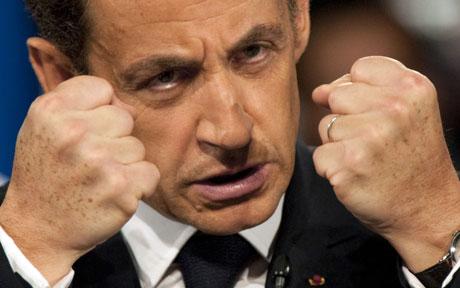As the euro continues to collapse, French President Sarkozy has indicated he does not want to wait for European countries to stop fighting before imposing a financial transaction tax.
This week, the euro fell for a fifth straight week against the dollar, its longest decline in nearly two years. It also fell against the pound, Australian dollar and yen, to their lowest levels in 11 years. What happens next will depend on the European Central Bank's meeting on January 12.
As a result, the first European “leader” to flinch was Nicolas Sarkozy. He expressed frustration that France was taking so long to reach an agreement on what to do next. He said he would not wait for the other eurozone countries to agree before imposing a financial transaction tax on institutions doing business in France.
Here in the UK, Prime Minister Cameron and Chancellor Osborne have voiced their opposition to imposing such a tax – not because they don't want to tax us, but because they don't want to create more bureaucracy controlled by the puppet masters in the City of London – they want a direct tax on wealth.
Those in favour of such a tax in the UK include a contingent of NGOs and celebrities, including Richard Curtis, who thinks it would be a good idea to blow up opponents of the climate change cult.
But as is the case in many of our political debates, both sides hide a fundamental point: a tax on financial transactions isn't a tax on banks. It's a tax on us.
A “Robin Hood” tax is not a tax that steals from the rich and gives to the poor. It is a tax that steals from everyone and gives to the rich through government debt interest payments.
This tax is no different than a corporate tax. What company on Earth doesn't take corporate tax into account when setting prices? No, in fact the cost of corporate tax is passed on to consumers and has no effect on any company's bottom line.
The same principle applies to a “Robin Hood” tax, the tax being passed on to our mortgages, savings and pensions.
So Sarkozy was the first to turn a blind eye: he knows the Eurosystem is about to collapse and is desperately searching for a source of revenue that will keep things hanging on for a few more minutes, perhaps until after the presidential elections in May.
But the fact remains that a financial transaction tax is a tax on us. If the goal is to clean up our current banking system, there is only one approach that works: start with Glass-Steagall.


